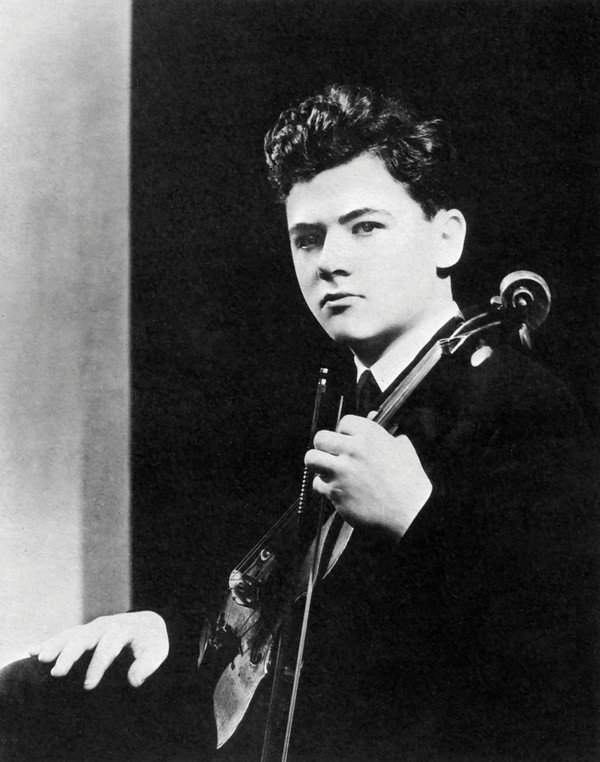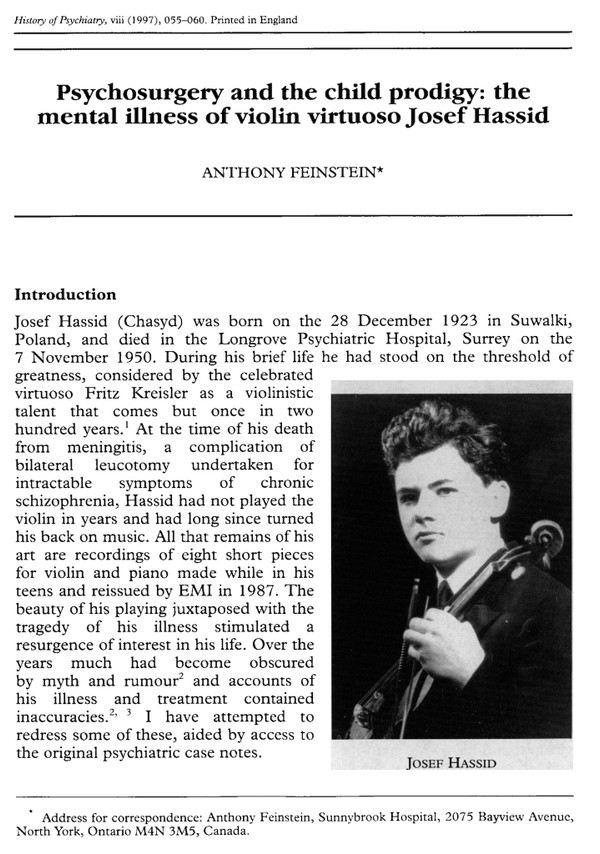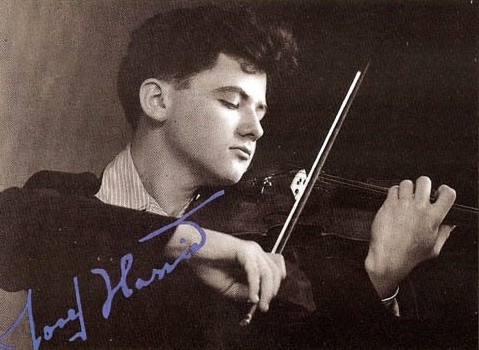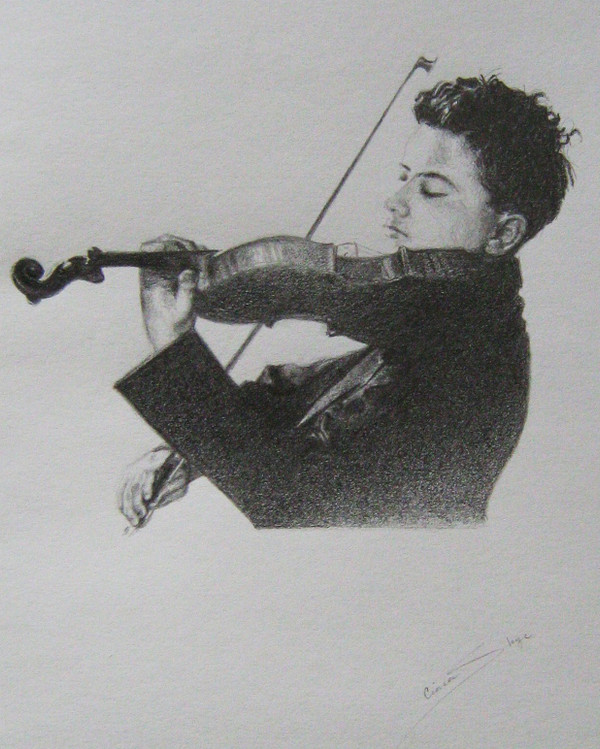Josef Hassid
Настоящее имя: Josef Hassid
Об исполнителе:
Josef Hassid (28 December 1923, Suwałki, Poland — 7 November 1950, Surrey, England) was a Polish-British child prodigy and virtuoso violinist, praised by leading musicians of the era as one of the most gifted young players; his teacher, a renowned pedagogue Carl Flesch, recalled in his memoirs that Fritz Kreisler said after hearing 15-year-old Josef play: "a fiddler like Heifetz is born every 100 years; one like Hassid every 200 years." The aspiring artist had an incapacitating mental illness and experienced his first "memory lapse" on stage at twelve. Josef Hassid was diagnosed with schizophrenia in 1941 when he turned eighteen and spent the rest of his life confined to mental institutions. Hassid underwent a lobotomy in October 1950 and died at 27 from the surgery complications. Raised in a Jewish family in a small city in northeastern Poland, Joseph Chasyd was the third of four children. In 1934, eleven-year-old Yossef enrolled in the Uniwersytet Muzyczny Fryderyka Chopina in Warsaw, studying under Mieczysław Michałowicz and Irena Dubiska. He entered a prestigious Henryk Wieniawski International Violin Competition in his sophomore year but suffered one of the first mental breakdowns, described as a "memory lapse;" nevertheless, the jury awarded 12-year-old Hassid with an honorary diploma. Soon after, Josef's father arranged an audition with renowned Polish violinist Bronislaw Huberman. Impressed by his immense talent, Huberman contacted the Hungarian virtuoso and distinguished violin teacher, Carl Flesch, and arranged an invitation for Hassid to Carl's 1937 summer courses in Belgium, where Flesch was equally dazzled by Josef's playing. In 1938, Hassid traveled to England with his father to continue violin studies under Carl Flesch, who now resided in London (forced to flee Europe after the Nazi government revoked his German citizenship). Numerous distinguished violinists visited Carl's house to witness young Joseph playing, such as Joseph Szigeti, Jacques Thibaud, David Oistrach, and Fritz Kreisler; all uniformly praised Hassid's natural dexterity and rapid advancements in his musical and interpretative abilities. Josef Hassid gave several private recitals, performing in March 1938 at the house of Leon Lazar Gildesgame (1894—1989) in South Hampstead, where he appeared in front of Sir Henry Wood, among others. In April 1940, seventeen-year-old Hassid made his critically acclaimed public debut at Wigmore Hall, billed as the "Polish Boy Violinist" and appearing with Gerald Moore on piano; they played Corelli's La Follia variations, Schubert's Sonata in G, and several works by Debussy, J.S. Bach, and Paganini. A few weeks later, Josef Hassid led a "Polish Relief Fund" concert with The London Philharmonic Orchestra under Grzegorz Fitelberg at Queen's Hall, London, broadcast on BBC Home Service. The performance was marred by yet another "memory lapse" that Josef had while playing Tchaikovsky's Violin Concerto; he recovered and finished the second act with Beethoven's Seventh Symphony without interruptions. Despite the overwhelming critical and public success, Josef Hassid soon began exhibiting more explicit signs of mental distress, which halted his aspiring career. By February 1941, Hassid constantly struggled with violent mood swings and gave up the violin. Josef's condition rapidly deteriorated when he became withdrawn and uncooperative and even stopped recognizing familiar faces. In June 1941, Hassid was committed to St Andrew's Hospital in Northampton. Josef's impresario and concert agent, Harold Holt, wrote to the hospital's superintendent, pleading that "the greatest effort possible to cure him" must be made and stressing that Hassid's talents are "most exceptional," with all the makings to become one of the greatest violinists. After barbaric treatments (but legitimate at the time), like insulin comas and electroconvulsive shock therapy, Josef Hassid's condition seemingly improved. He left the hospital in May 1942 but, unfortunately, couldn't resume his music activities as Hassid almost immediately relapsed and began falling apart; by December, he got diagnosed with "insanity" and admitted to Moorcroft House, a private asylum in Hillingdon, Middlesex. In July 1943, Josef was transferred without any improvements to Long Grove Hospital in Epsom, Surrey, where he remained committed for the rest of his life. After Josef's father died in 1949, his condition got even worse. In October 1950, Josef Hassid underwent a bilateral prefrontal lobotomy. He developed a post-op infection that progressed into meningitis; Josef died in November 1950 at twenty-seven.




